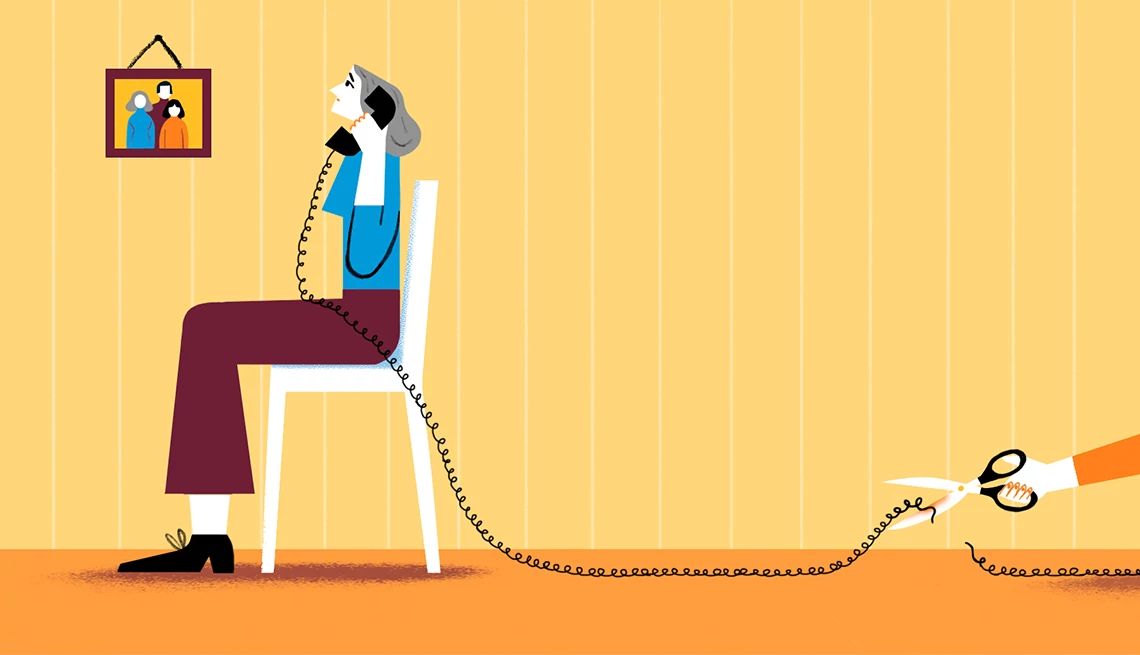AARP Hearing Center


Welcome to Ethels Tell All, where the writers behind The Ethel newsletter share their personal stories related to the joys and challenges of aging. Come back each Wednesday for the latest piece, exclusively on AARP Members Edition.
I do not deny that some parents are simply evil, awful people who never should have had kids in the first place. I just don’t think I happen to be one of them — something my 20-something daughter might disagree with.
Since I am actively trying to heal our estrangement, I’m writing this anonymously — because I’m not the only parent out there who needs someone to talk to about this, and I am unwilling to harm my child with any unwanted public attention.
But yes, the number of young and midlife adults choosing to have no contact with their families seems to be growing. There are support groups, counseling programs, TikTok videos, books and YouTube channels dedicated to servicing both sides of the conflict and, some would say, also fueling it with heated rhetoric.
Until my daughter stopped communicating with me, I would have said family disagreements have always occurred, and today we have the internet amplifying the noise. But something else — something bigger — has changed. Nowadays, the parental offense doesn’t need to rise to the level of inflicting sexual or physical harm — or even heaping verbal abuse on your child.
It also doesn’t limit itself to families who reject their children’s sexual orientation or gender identity or who try to impose their religious beliefs on them. There doesn’t have to be an intention to inflict pain, nor is awareness of wrongdoing on the part of the parent even necessary. In many cases — like my case — I didn’t even know the nature of my crimes, only the results.
My daughter, who clung to me like an extra appendage growing up, told me to just stay out of her life. Initially, she wanted no contact whatsoever but in recent weeks has softened her stance to contact me — though only on her terms.
Now that my heart has stopped hemorrhaging and I’ve had some time to think things over, I would say that what we are witnessing is much bigger — it’s a challenge to the societal norm that having a family is a good thing. Those who encourage the nuclear option — to just stop communicating with your family members if you deem them “toxic” to your well-being — believe it can be healthier to create a new “family” with friends and peers.
Karl Pillemer, a Cornell gerontologist, conducted the first large-scale survey in 2019 on the subject. The survey of adults 18 and older found that 27 percent of respondents reported they are estranged from a relative. Pillemer found it relatively common for people in their 20s to estrange themselves from a parent, though he noted that in many cases, the estrangement is only temporary. I certainly hope mine will be, and I’m ready to do whatever it takes to mend us.
To me, it’s like somebody moved the goalposts for parenting. There has been a generational shift in what counts as “abuse” and “trauma.” Practices that felt like normal parenting to me were relabeled by my daughter and her peers as “extreme helicopter parenting.”
I was “overprotective to the point of abuse,” she said, and she was “traumatized” and had “lost self-confidence” from being “second-guessed about everything, all the time.” She was tired of me weighing in with advice about “every little thing.”




































































You Might Also Like
Help! I Hate My Aging Body
A woman says she used to be a stunner; now she feels like a 'rotten rose'
I Was Almost 50 When I Realized Other Women Masturbated
Here’s what I’m doing now that I’m 80
8 Ways to Boost Your Grandkid's Confidence
Use the time you spend with your grandkids to sneak in a few of these confidence-boosting activities